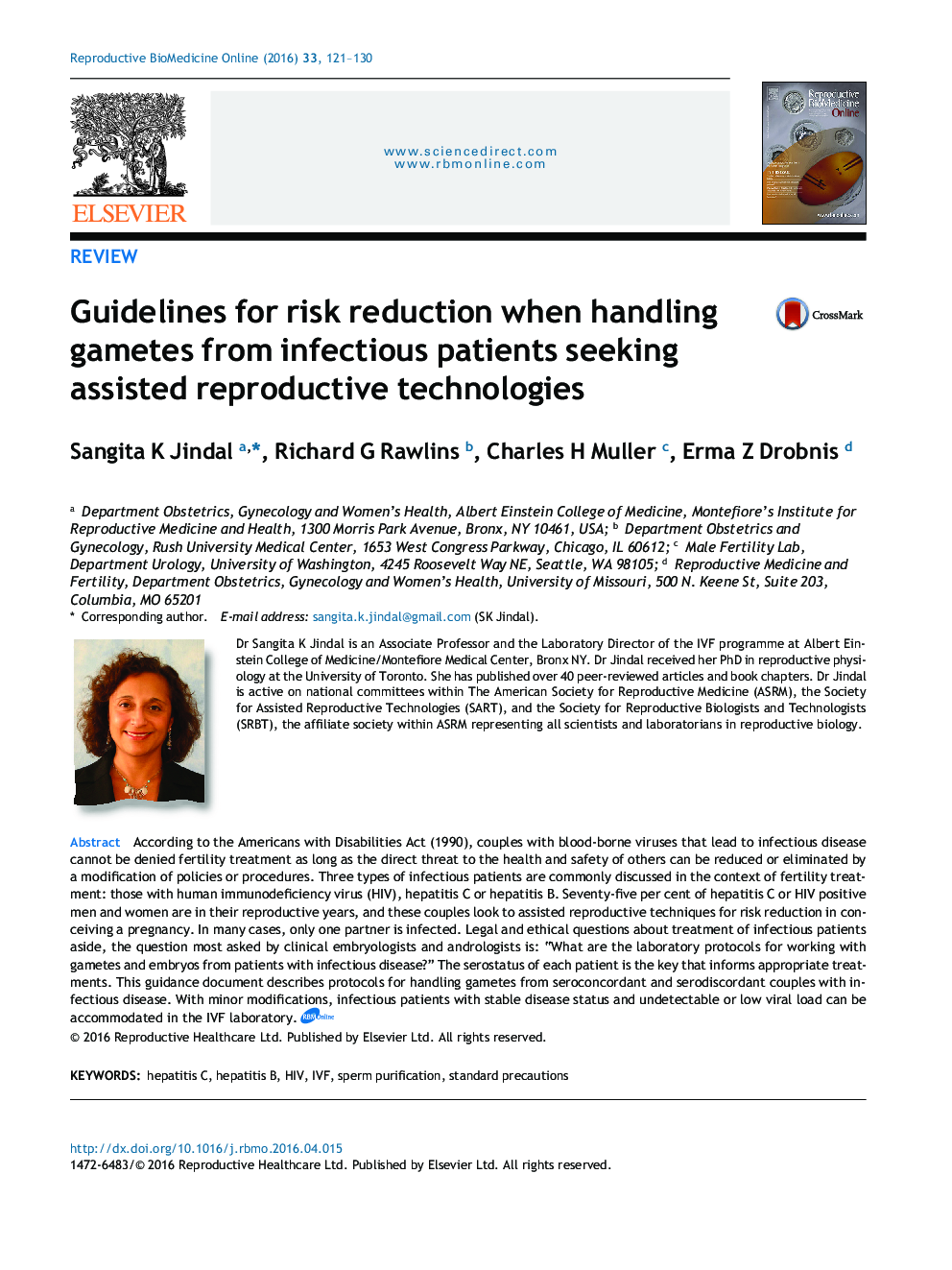| Article ID | Journal | Published Year | Pages | File Type |
|---|---|---|---|---|
| 6188568 | Reproductive BioMedicine Online | 2016 | 10 Pages |
According to the Americans with Disabilities Act (1990), couples with blood-borne viruses that lead to infectious disease cannot be denied fertility treatment as long as the direct threat to the health and safety of others can be reduced or eliminated by a modification of policies or procedures. Three types of infectious patients are commonly discussed in the context of fertility treatment: those with human immunodeficiency virus (HIV), hepatitis C or hepatitis B. Seventy-five per cent of hepatitis C or HIV positive men and women are in their reproductive years, and these couples look to assisted reproductive techniques for risk reduction in conceiving a pregnancy. In many cases, only one partner is infected. Legal and ethical questions about treatment of infectious patients aside, the question most asked by clinical embryologists and andrologists is: “What are the laboratory protocols for working with gametes and embryos from patients with infectious disease?” The serostatus of each patient is the key that informs appropriate treatments. This guidance document describes protocols for handling gametes from seroconcordant and serodiscordant couples with infectious disease. With minor modifications, infectious patients with stable disease status and undetectable or low viral load can be accommodated in the IVF laboratory.
